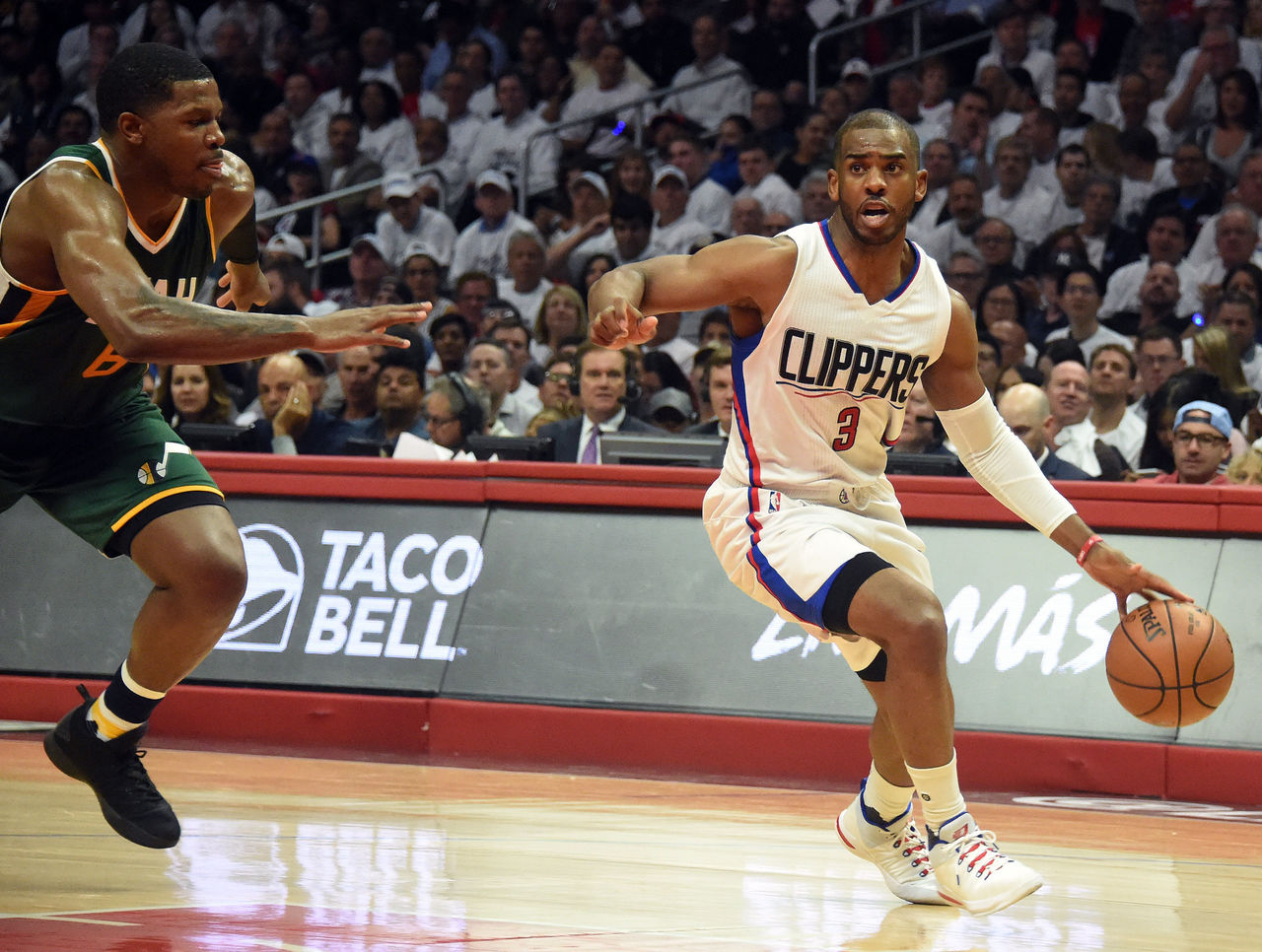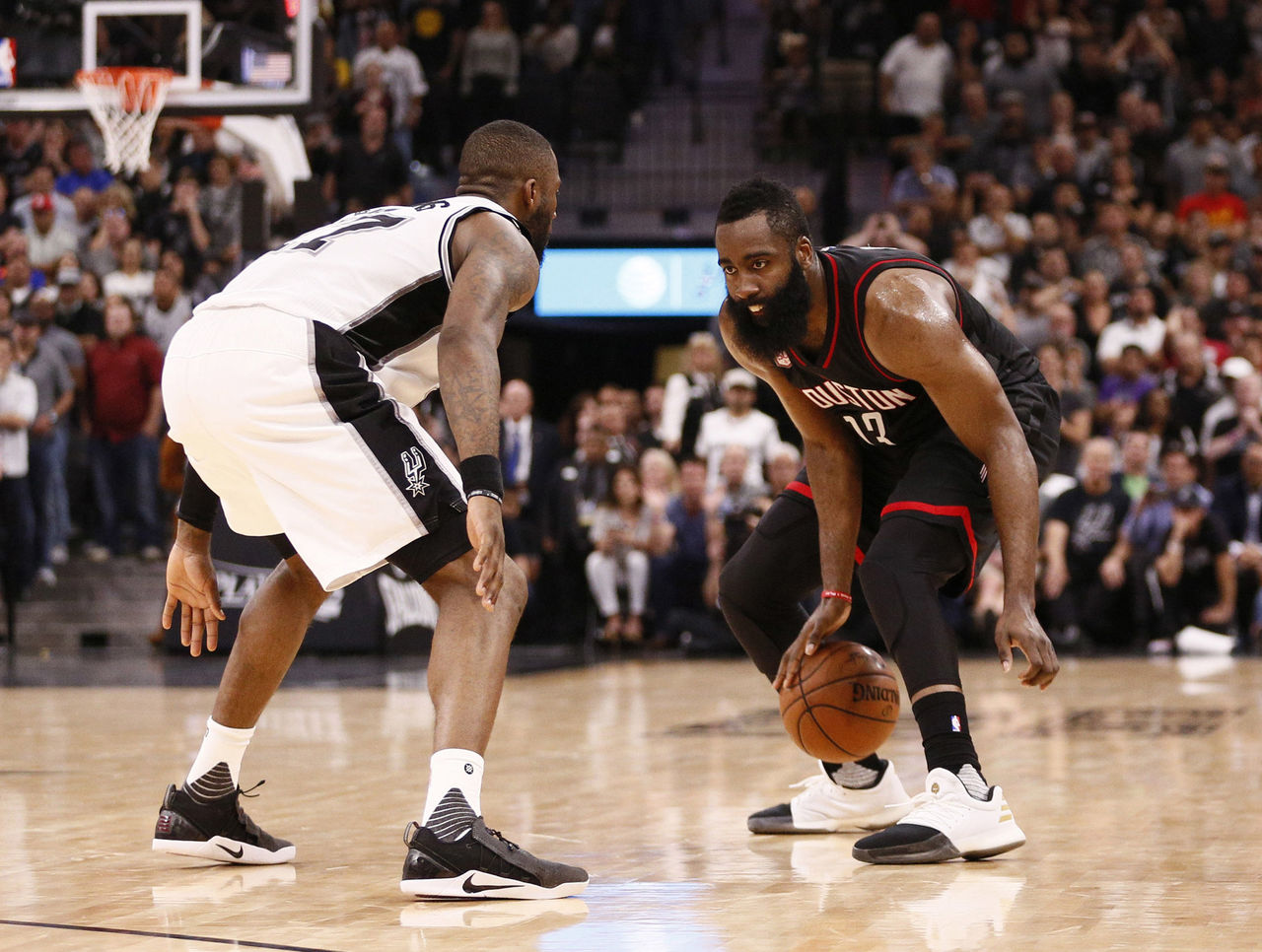The Paul-Harden fit is imperfect, and that's totally fine
Talent remains the most important consideration in the construction of an NBA roster, but fit runs a not-too-distant second. Plenty of supremely talented teams have fallen short of expectations in the past because the fit wasn't quite right. Chris Paul's now-former Los Angeles Clippers are a good example.
In the former category, no sane person would argue the Houston Rockets didn't hit a home run Wednesday with their acquisition of Paul. In the latter category, well, time will tell. For now, the jury's out, with the skepticism centering on Paul's fit alongside new backcourt mate James Harden.
Paul and Harden are similar offensive players, in some ways. They are ball-handling magicians, brilliantly inventive passers, and dead-eyed spot-up shooters. Paul is perhaps the best pure point guard of his generation. Rockets coach Mike D'Antoni recognized Harden - historically a shooting guard - for what he was, and turned him into a full-time one-guard last season, to staggering results. There is an embarrassment of talent in the Rockets' backcourt, and also a good deal of overlap.
Though they operate on different spots on the floor - Paul at the elbows and the in-between spaces, Harden from behind the arc and at the rim - both make hay by changing the pace and direction of their dribbles, probing a defense for seams, putting defenders on their hips, using hesitation moves to open up diving lanes for rolling big men, and creating space for themselves to launch pull-up jumpers. And all of this requires that each player control the basketball for long, long stretches. Harden ranked first in the NBA in average time of possession last season. Paul ranked seventh.

This doesn't necessarily spell trouble for the Rockets. Their goal would ostensibly be to involve both in as many actions as possible, and avoid the tedious your-turn-my-turn cycle that can bog down offenses with multiple ball-dominant players. But even that arrangement would be an upgrade over the my-turn-all-the-time approach that eventually ground Harden down to a nub this past postseason. If nothing else, the option to defer so frequently will give each a chance to take the occasional breather. It will perhaps preserve Harden's legs for the defensive end of the floor, and keep Paul fresher as he moves gently into the twilight of his career.
Neither guy is used to playing off the ball, but both are fully capable spot-up shooters, when called upon to do so. Paul was particularly devastating off the catch last season, shooting 47.4 percent from the field and 49.3 percent from 3-point range. Harden shot 38.3 percent on catch-and-shoot threes (he attempted just six catch-and-shoot twos), miles better than his 32.9-percent mark on his far more frequent, higher-degree-of-difficulty threes off the dribble. Both will have to get used to being without the ball, but there's no reason to think they won't enjoy it once they're reaping the rewards.
Unlike so many of the Rockets' role players last year, Paul can also make plays off the catch. With him and Harden sharing the floor, Houston can tilt the defense, open up one side of the floor, and then pivot immediately from one pick-and-roll to the next. But the bigger-picture benefit may involve those times when they won't be on the floor together. D'Antoni has vowed that he'll stagger the pair's playing time, and that nary a meaningful Rockets minute will be played with both on the bench. The ability to have an MVP-caliber player on the floor at all times is a tremendous luxury, and in theory both Paul and Harden should benefit. So, too, should the Rockets' supporting cast.

Defenses are going to be stretched to their breaking point trying to track Paul and Harden around screens, and trying to stay home on the 3-point bombing likes of Ryan Anderson, Eric Gordon, and Trevor Ariza, while Clint Capela barrels down the lane looking for a lob from one of two guys who size up the floor and make snap decisions as well as anyone in the game. Everything will just be easier for the Rockets. For all of them.
Paul and Harden have both orchestrated some of the league's best offenses the past few years, without the benefit of a second playmaker half as good as the one each is about to be paired with. As much as Blake Griffin made leaps as a passer and ball-handler throughout his tenure as Paul's running mate, he couldn't stretch the floor or break down a defense off the dribble. As much as Harden has had ideal complementary pieces - dive men and spot-up shooters spacing the floor for his pick-and-roll wizardry - he hasn't had another guy capable of relieving the pressure, or making that next play, when opposing defenses load up. One expects they'll be grateful for each other.
That's all strictly between the lines, of course, and personality can always get in the way. Paul and Harden have strong ones, and they've worn on their teammates in the past. But in pure basketball terms, they're in a great situation. The fit may not be perfect, but in this case, it's good enough that the talent should win out.
(Photos courtesy: Action Images)